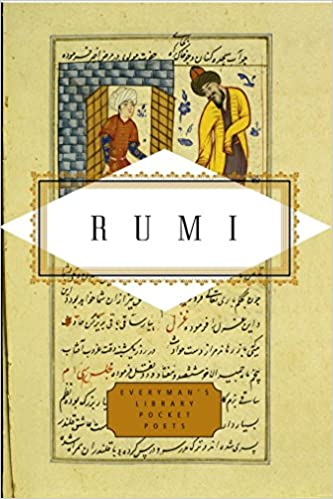'Tis light makes colour visible: at night
Red, green, and russet vanish from thy sight.
So to thee light by darkness is made known:
All hid things by their contraries are shown.
Since God hath none, He, seeing all, denies
Himself eternally to mortal eyes.
From the dark jungle as a tiger bright,
Form from the viewless Spirit leaps to light.
When waves of thought from Wisdom's Sea profound
Arise, they clad themselves in speed and sound.
The lovely forms a fleeting sparkle gave,
Then fell and mingled with the falling wave.
So perish all things fair, to re-adorn
The Beauteous One whence all fair things were born.
("Reality and Appearance" translated by R. A. Nicholson, Rumi, printed 2006)
It took me a few times to grasp this lovely poem. If you don’t think you understand it, I encourage you to read it again. Then again. And again, until you think you see what Rumi is saying. Here what I see:
As light displays colors, so night covers them. In the darkness, all things are hidden, and must be known by things other than what is seen in the light, called “contraries”. But God has no “contraries”, no darknesses, so He remains invisible to human eyes eternally. He must be known by other means, described in the second part of the poem. I love the line about Wisdom’s Sea and the waves of that sea becoming speech and sound. Then in the end, all things fair come from God, The Beauteous One.
